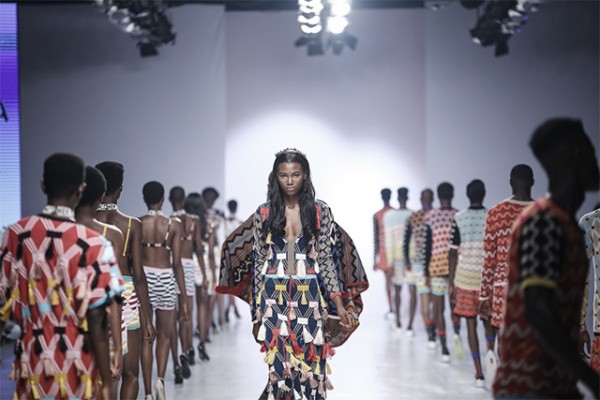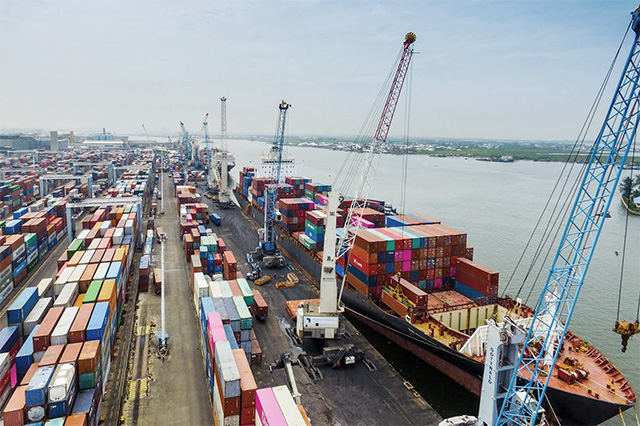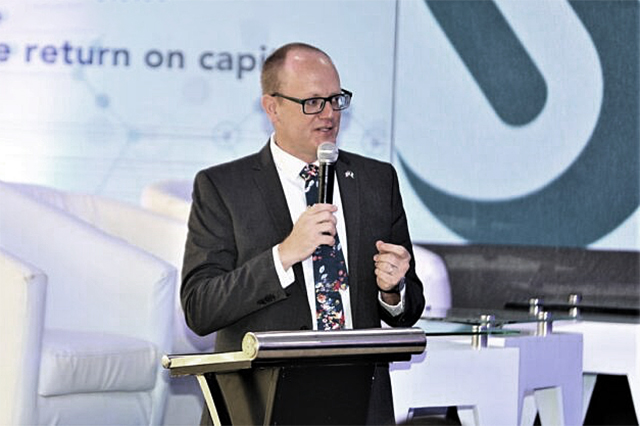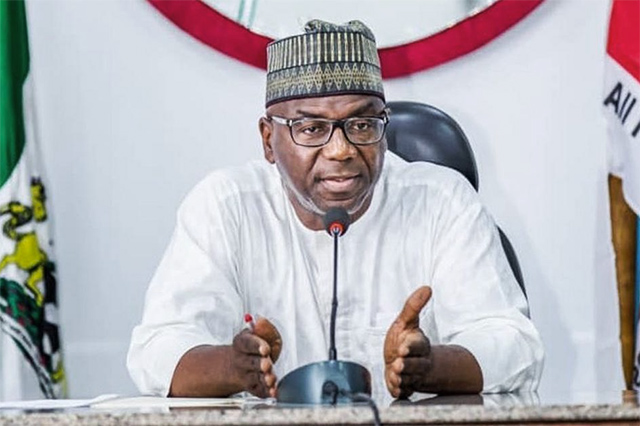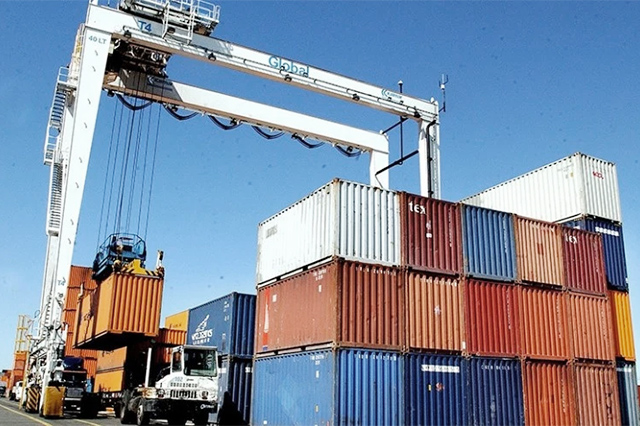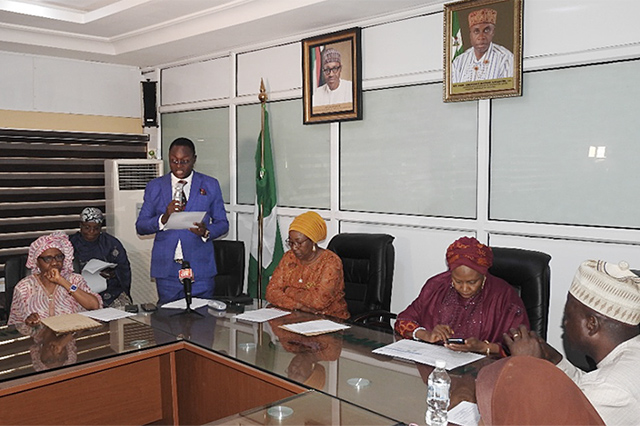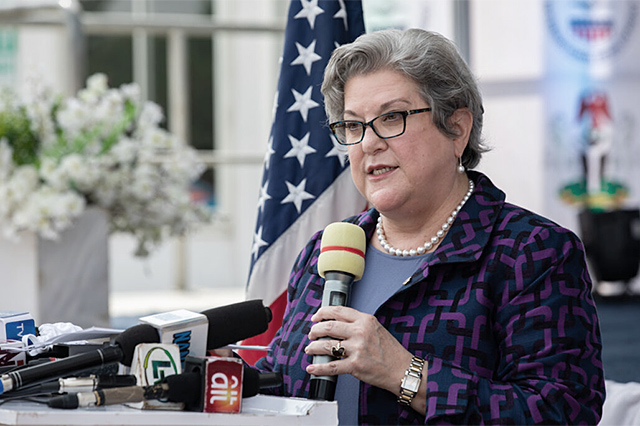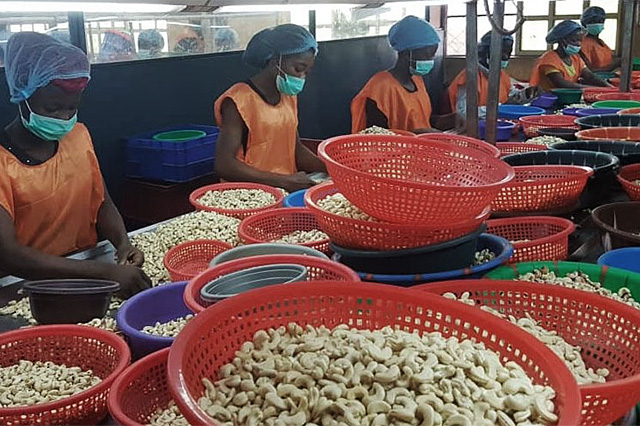Kenya shows Nigeria’s missed textile, apparel export opportunities with AGOA
Duty- and quota-free access to the United States of America’s market granted by the African Growth and Opportunity Act (AGOA) has played a significant role in boosting trade and investment between sub-Saharan Africa and the US.
Many qualifying African countries have achieved notable successes in exporting goods under Agoa to the US. These successes include textiles and apparel from Kenya, Ethiopia, Mauritius, Lesotho, Ghana, and Madagascar.
For example, in Kenya, the sales dominated by apparel under Agoa have grown from US$55 million in 2001 to US$603 million in 2022, constituting 67.6 per cent of the country’s total exports to the US, according to information obtained from the World Economic Forum.
Kenya is the second-largest exporter of textile and apparel products to the United States among Agoa beneficiaries.
Furthermore, Kenya will receive $55 million from the US to expand its export processing zones, aiming to bolster Nairobi’s apparel exports, data from Agoa website show.
The funding announcement was made by the US initiative Prosper Africa and the US Embassy during the launch of the US-Kenya Business Roadshow on April 25, 2023, in New York. This funding commitment aligns with President Joe Biden’s pledges made at the US-Africa Leaders’ Summit last year.
The funds, to be administered through USAid and Prosper Africa, will primarily target women-led organisations and export processing zones (EPZs), where a significant proportion of the workforce consists of young women.
US Ambassador to Kenya, Meg Whitman, expressed enthusiasm about partnering with the Prosper Africa initiative to drive investment not only in Kenya but also in countries across the African continent.
The funding involves six new co-investments with American and Kenyan apparel companies, which will connect American buyers with Kenyan manufacturers, creating jobs.
Outline of Agoa
Enacted in 2000 by the United States, Agoa was designed to promote economic development in sub-Saharan Africa by facilitating trade and investment. One of its key provisions was to provide duty-free access to the US market for eligible African countries, including Nigeria, for a wide range of products, including textiles and apparel.
Agoa provides eligible sub-Saharan African countries with duty-free access to the U.S. market for over 1,800 products, in addition to the more than 5,000 products that are eligible for duty-free access under the Generalised System of Preferences programme.
To meet Agoa’s rigorous eligibility requirements, countries must establish or make continual progress toward establishing a market-based economy, the rule of law, political pluralism, and the right to due process.
Additionally, countries must eliminate barriers to U.S. trade and investment, enact policies to reduce poverty, combat corruption, and protect human rights.
By providing new market opportunities, Agoa has helped bolster economic growth, promoted economic and political reform, and improved U.S. economic relations in the region.
Thirty-two countries will be eligible for Agoa benefits in 2024. In 2015, Congress passed legislation modernising and extending the programme to 2025.
Nigeria’s textile and apparel potential
Nigeria possesses significant potential in the textile and apparel industry, with a rich history of textile production and a large domestic market. The sector can create employment opportunities, promote industrialisation, and contribute to economic growth.
One way of estimating the size of or valuing Nigeria’s textile and apparel market is to look at the value of imported garments or apparel. Data from the National Bureau of Statistics (NBS) indicates that the textile, apparel, and footwear subsector last experienced positive growth in 2018.
Despite the federal government’s efforts to revive local production through protection policies, Nigeria’s textile industry continues to struggle, leading to a doubling of textile imports over the past years.
Since then, the Central Bank of Nigeria (CBN) has implemented various intervention programmes, including financial support, training initiatives, and foreign exchange restrictions on textile imports at the official exchange market.
Despite these efforts, NBS data shows a significant increase in textile imports, rising by 100.3 per cent to N365.5 billion in 2022, that is, $862.23 million in 2022 exchange rate marking the highest level in at least 15 years, up from N182.5 billion in 2020, this was $462.12 million, in the best exchange rate of the 2020.
Hamma Kwajaffa, director-general of the Nigerian Textile Manufacturers Association told BusinessDay that Nigeria’s high cost of production makes local textile and apparel makers uncompetitive, and discourages investments.
During the 1970s and early 1980s, Nigeria, Africa’s most populous nation, boasted over 180 textile mills, employing more than one million Nigerians. Among these mills were United Nigerian Textile Limited, Aswani Textile, Afprint, Asaba Textile Mills, and Edo Textile Mills.
However, by the 1990s, these once-thriving firms vanished due to challenges such as smuggling, rampant importation, unreliable power supply, inconsistent government policies, and insecurity, making it impossible for them to remain competitive.
Nigeria’s efforts through NEPC to seize AGOA
The Nigeria Export Promotion Council (NEPC) initiated several projects and initiatives to leverage Agoa and promote Nigeria’s textile and apparel exports to the US market. Examples of these projects include:
Capacity Building Programmes: NEPC organised training workshops and capacity-building programmes to enhance the skills and capabilities of Nigerian textile manufacturers and exporters.
Market Access Initiatives: NEPC facilitated trade missions and participated in trade fairs and exhibitions in the United States to showcase Nigerian textile products and explore market opportunities.
Quality Standards Improvement: NEPC worked to improve the quality standards of Nigerian textile and apparel products to meet the requirements of the US market and enhance competitiveness.
Status of NEPC projects
Despite these efforts, the outcomes of NEPC projects have been mixed, and the Nigerian textile and apparel industry has failed to fully capitalise on Agoa. While some companies have benefited from Agoa preferences and increased exports to the US market, the overall performance of the sector has been below expectations.
Despite its potential, Nigeria’s textile and apparel industry has failed to fully benefit from Agoa due to various challenges and limitations.
To unlock the sector’s growth potential and capitalise on future trade opportunities, Nigeria must address the challenges dwarfing the sector through targeted policies and interventions that promote competitiveness, innovation, and market access.
Agoa’s conclusion in 2025 underscores the urgency for Nigeria to accelerate reforms and strategic investments in its textile and apparel industry to position itself for sustained growth and competitiveness in the global marketplace.
Nigeria’s top 10 textile and apparel-making states
Unfortunately, there isn’t official data readily available to definitively rank the top 10 textile and apparel-making states in Nigeria. However, several states consistently rank high anecdotally and based on industry reports.
However, this ranking is based on the criteria below.
Industry recognition: States known historically or anecdotally as centres for textile production or garment manufacturing made the list.
Concentration of businesses: States with a higher density of textile mills, garment factories, and tailoring businesses were considered strong contenders.
Presence of traditional textiles: States known for specific, well-regarded traditional textiles like Kano cloth, Akwete, Aso Oke, and Adire were included due to their cultural significance and potential economic impact.
This is not an exhaustive list of criteria, and a more in-depth analysis might consider factors like:
Fabric production capacity: States with higher cotton production or established textile mills would likely rank higher.
Export volume: Ideally, data on textile and apparel exports from each state would be a strong ranking factor.
Employment numbers: The number of people employed in the textile and apparel sector within each state would be valuable data.
Unfortunately, such comprehensive data isn’t readily available for all Nigerian states.
Here are the top 10 textile and apparel-making states:
Abia State: Often referred to as the “Fashion Capital of Nigeria”, Abia State is home to a large concentration of textile mills, garment factories, and indigenous tailors particularly in Aba, its commercial centre.
Lagos State: Lagos, the commercial hub of Nigeria, also boasts a significant textile and apparel industry. From large manufacturers to a thriving market for local fabrics and small-scale tailoring businesses, Lagos plays a vital role in the sector.
Kano State: Located in northern Nigeria, Kano has a rich history of textile production and is known for its traditional Kano clothes. The city also houses several modern textile factories.
Ogun State: With its proximity to Lagos, Ogun State has emerged as a textile and apparel manufacturing hub. Several industrial parks house textile companies, making the state a significant player in the sector.
Ondo State: The southwestern state of Ondo is known for its production of Akwete cloth, a handwoven fabric traditionally made by women. The state is also increasingly attracting textile manufacturers.
Osun State: Osogbo, the capital of Osun State, is known for its traditional Aso Oke cloth. The production of this weft-faced, narrow-loom Yoruba textile is a significant source of income for many in the state.
Kwara State: Kwara State has a growing textile industry, with several garment factories operating in the state. The state is also home to many cotton farmers.
Kaduna State: Kaduna State has a long history of textile production, dating back to the pre-colonial era. The city of Kaduna was once a major centre for the textile industry, and there are still some textile factories in operation today.
Delta State: Delta State is home to a growing textile industry, with several garment factories operating in the state. The state is also working to develop its cotton production capacity.
Ekiti State: Ekiti State is known for its production of Adire cloth, a traditional indigo-dyed fabric. The state is also home to some textile manufacturers.
It is important to note that this list is not exhaustive and the ranking can vary depending on the specific criteria used.


